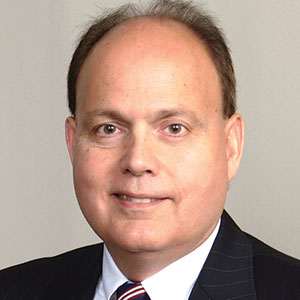Every health care provider, regardless of size, worries about their revenue cycle.
“Health care companies in Pennsylvania are facing some of the most complex payment systems of any business,” says Jim Altman, Middle Market Pennsylvania Regional Executive at Huntington Bank.
Regardless whether it’s a 10-person medical practice, an ambulatory surgery center or a fully integrated hospital system, companies in this field may find solutions through a consultation with bankers that specialize in the health care industry. Bankers with this specialty can do a deep, consultative review of a health care business’s revenue cycle process, identifying challenges and offering solutions gleaned from their experience seeing the best practices of companies across the country and applying them through a technological solution where applicable.
Smart Business spoke with Altman about how optimizing data and payments can help improve efficiency, reduce costs and better manage the revenue cycle.
What payment issues are health care companies dealing with?
The complexity of the billing process and the challenges it presents has been compounded by the labor shortages affecting businesses in all sectors. During the early months of the COVID pandemic, health care companies sent administrative people to work from home. But because many of their processes were manual, it was difficult to switch to a digital parallel. So, not only was there more work than there had previously been, that work had to be performed from a new place in a new way and often with fewer people to complete the process.
Health care billing and its related issues aren’t going to get less complex. So, it’s critical to find solutions to deal with them.
What solutions are available?
Technology can be used to help health care providers automate and simplify the process. Invoicing and payment routing can be automated, freeing up human resources to handle other functions. However, while there are technological answers for health care companies’ billing challenges, it’s prudent to work with banking partners who can break down internal issues to find solutions to address a company’s unique problems. It’s also a chance to align some of these functions with industry best-practices, creating efficiencies and eliminating bottlenecks.
What’s important to work with a consultant?
A consultative approach from your banker matters because the demands for an ambulatory surgery center are very different than an integrated delivery network. The building blocks are the same, but they’re put together uniquely to suit the needs of individual companies.
Through a consultative process, commercial bankers and treasury management personnel can work with accounts payable, operations and finance staff to examine the billing process and benchmark against some of the best processes in the industry to introduce improved practices. It’s a thoughtful and thorough review of how things are done today, how things could be better, and then applying practices from best-in-class operators around the United States.
Such a review of a business’s existing operations can take place every few years to keep pace with technology, which continues to improve rapidly. Those that aren’t reviewing their processes may be missing opportunities to integrate technology into their work stream — from automating patient intake, getting pre-authorizations from the insurance companies, to obtaining upfront co-pays and collecting from the insurance companies.
Revenue cycles and billing processes are unique for every company. That’s why a consultative approach from a consultative health care professional can help a company explore all alternatives and provide the best data and integrated solutions to automate specific processes within the business. Look for treasury management employees who are certified in the revenue cycle process through the Association for Financial Professionals, which indicates that they are specialists in revenue cycle management. Coupled with technology, this exercise can be used to drive the integration of payments and help health care providers automate and simplify the process. ●
INSIGHTS Banking & Finance is brought to you by Huntington Bank

